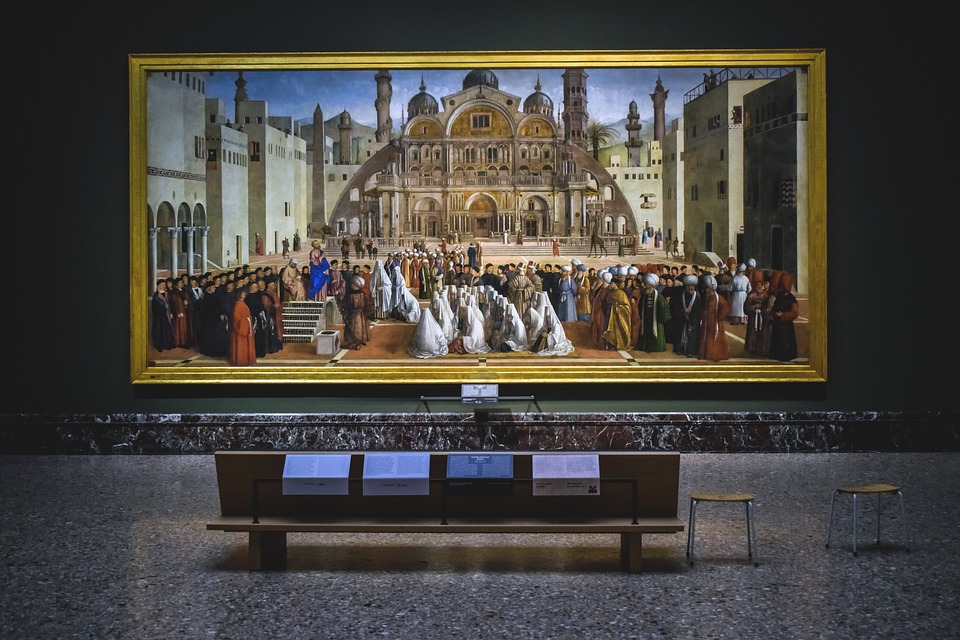Among the many museums, the Brera Gallery in Milan has been a true jewel of Italian art for more than two hundred years. Founded in 1809 at the Academy of Art, the Brera Gallery became a haven for budding artists and sculptors and, as if it had foreseen its destiny, it became the largest gallery in Milan.
Today, thirty-eight rooms of the gallery present recognized masterpieces of painting and sculpture for public viewing. Each room represents a different chronological era or school, as well as thematic rooms.
Rooms one and thirty-four have been reserved for depictions of Jesus Christ, while another has been reserved for icons from the 18th century depicting the followers of Christ. The second, third, and fourth rooms display paintings by Italian masters of the 13th-16th centuries. The works of Venetian painters of the 15th and 16th centuries are in Halls 5 and 6. Magnificent works of the Venetians are also in rooms seven, eight, nine, and fourteenth. Room ten is used exclusively for the works of contemporary artists. Halls fifteenth through nineteenth are devoted to the frescoes of the fifteenth through sixteenth centuries, on which the masters depicted the saints. The twenty-first room is a collection of 15th-century polyptychs. The twentieth room, as well as the twenty-second and twenty-third rooms, were set aside specifically for Bologna masters. The Masters of the High Renaissance took up Room twenty-four. The works of the natives of central Italy of the 15th-16th centuries are exhibited in rooms twenty-seven and twenty-eight. Michelangelo Merisi was honored in Room twenty-nine. The thirtieth room was a haven for seventeenth-century Lombard paintings. The paintings of Dutch artists are exhibited in rooms thirty-first, thirty-second, and thirty-third. In the thirty-fifth and thirty-sixth rooms, Venetian painters again settle, but already in the eighteenth century. The thirty-seventh and concluding thirty-eighth rooms are reserved for painters of the nineteenth century.
Some rooms of the gallery are used for exhibitions of contemporary works by local masters. Visiting the Brera Gallery in Milan, one cannot plan to spend a certain amount of time inside, as time here belongs to the past. The museums of Italy give us priceless masterpieces and it is worth visiting Milan to appreciate it all.
